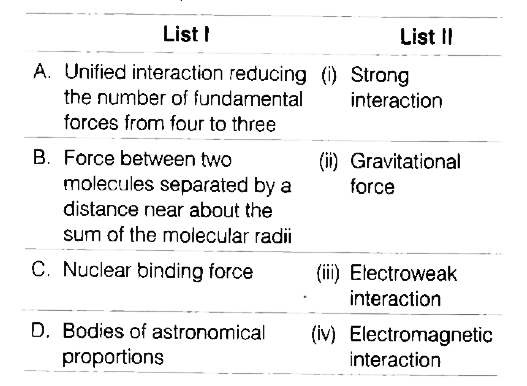A glass beaker contains 200g of carbonated water initially at 20∘C. How much ice should be added to obtain the final temperature of 0∘C with all ice melted, if the initial temperature of ice is −10∘C. Neglect heat capacity of glass. [Take, Cwater=4190J/kg∘C,
Cice=2100J/Kg∘C,LP==3.34×105J/Kg]Solution in Telugu
47g
76g
200g
22g
The correct Answer is:A
Heat lost by carbonated water = Heat gained by ice
Let, mi= mass of ice melted and mw = initial mass of carbonated water.
mwcw(20−0)=miLf+mi(ci)[0−(−10)]
⇒200×10−3×4190×20
=mi(3.34×105+2100×10)
⇒mi=47×10−3kgormi=47g
Topper's Solved these Questions
Similar Questions
If A represents density, B represents velocity, C represents specific heat capacity and D represents wavelength, then the quantity having the dimensions of product of A, B, C and D is
View SolutionMatch the entries in List I with those in List II.

View SolutionA piece of ice of mass of 100g and at temperature 0∘C is put in 200g of water of 25∘ How much ice will melt as the temperature of the water reaches 0∘C? The specific heat capacity of water=4200Jkg−1K−1 and the latent heat of ice =3.36×105Jkg−1
View SolutionA calaorimeter of water equivalent 83.72 Kg contains 0.48 Kg of water at 35^@ C . How much mass of ice at 0^@C should be added to decrease the temperature of the calorimeter to 20^@ C . (S_(w) = 4186 J//Kg -K and L_(ice) = 335000 J//Kg) .
View SolutionWhen 1.5 kg of ice at 0^(@)C mixed with 2 kg of water at 70^(@)C in a container, the resulting temperature is 5^(@)C the heat of fusion of ice is ( s_("water") = 4186 j kg^(-1)K^(-1))
View SolutionThe temperature of ice is – 10°C [specific heat = 0.5 kcal//(kg-°C) ] and that of water 60°C . They are mixed in equal amounts. What part of the ice will be melted ?
View SolutionA vessel contains 10^(–1) kg of ice at 0^(@)C . Now steam is passed into the vessel to melt ice. Neglecting the thermal capacity of the vessel, find the mass of water in the vessel when all ice melts into water.
View SolutionAbout 5 g water at 30∘C and 5g is at −20∘C are mixed in a container of negligible heat capacity. Find the final temperature and composition of the mixture. Given that specific heat of water is 4200J/kg∘C and that of ice of 2100/kg∘C and latent heat of ice is 3.36×105J/Kg
View SolutionFind the final temeprature and composition of the mixture of 1 kg of ice at −10∘C and 4.4 kg of water at 30∘C. Given that specific heat of water is 4200J/kg∘C and that of ice is 2100J/kg∘C and latent heat of fusion of ice is 3.36×105J/kg
View SolutionA piece of ice of mass of 100g and at temperature 0∘C is put in 200g of water of 25∘ How much ice will melt as the temperature of the water reaches 0∘C? The specific heat capacity of water=4200Jkg−1K−1 and the latent heat of ice =3.36×105Jkg−1
View SolutionWhen 1.5 kg of ice at 0^(@)C mixed with 2 kg of water at 70^(@)C in a container, the resulting temperature is 5^(@)C the heat of fusion of ice is ( s_("water") = 4186 j kg^(-1)K^(-1))
View SolutionA calorimeter of heat capacity 83.72 J k−1 contains 0.48 kg of water at 35∘C. How much mass of ice at 00 C should be added to decrease m the temperature of the calorimeter to 20∘ C .
View SolutionA vessel of negligible heat capacity contains 5-0 kg of water at 50∘C. If 5.0 kg of ice at 0∘C is added to it, find : (i) heat energy imparted by water in fall of its temperature from 50∘C to 0∘C, (ii) mass of ice melted, (iii) final temperature of mixture, and (iv) mass of water at 0∘C in mixture. Given : specific heat capacity of water = 4200 J kg−1K−1, specific latent heat of ice = 336 kJ kg−1.
View SolutionA piece of ice of mass 40 g is dropped into 200 g of water at 50^(@)C . Calculate the final temperature of water after all the ice has melted (sp. heat capacity of water = 4200 J//kg^(@)C , sp. latent heat of fusion of ice = 336 xx 10^(3) J//kg )
View SolutionFind the heat needed to convert 10 g of ice at 0^(@)C to water at 20^(@)C . Given L_((ice))=336xx10^(3) J kg^(-1), C_(("water"))=4200 J kg K^(-1)
View Solution
